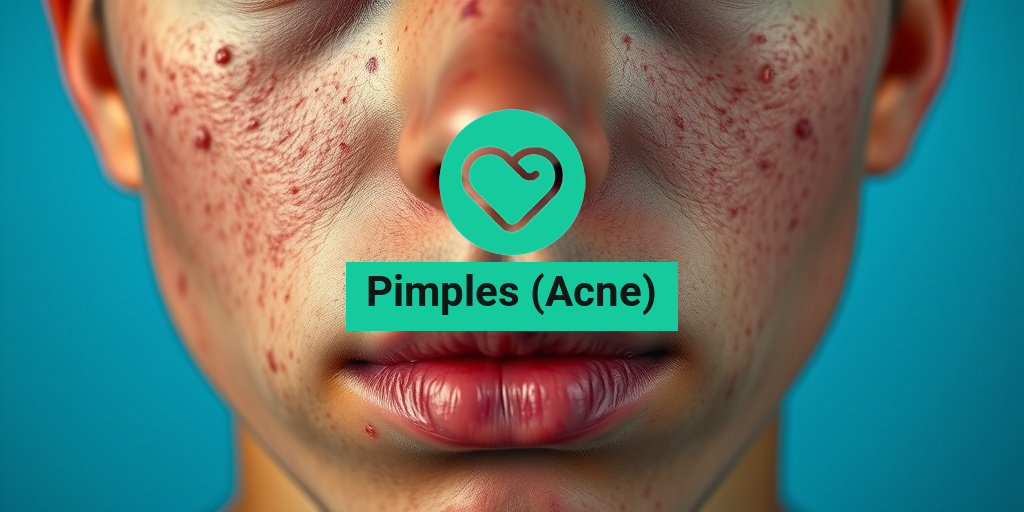What Are Pimples?
Pimples, commonly referred to as acne, are small, inflamed bumps that can appear on the skin, particularly on the face, back, and shoulders. They occur when hair follicles become clogged with oil, dead skin cells, and bacteria. This blockage leads to the formation of a pimple, which can be red, swollen, and sometimes painful. Understanding what causes pimples is crucial for effective treatment and prevention.
The Science Behind Pimples
At the core of pimple formation is a process involving several factors:
- Excess Oil Production: The sebaceous glands in our skin produce oil (sebum) to keep it moisturized. However, when these glands produce too much oil, it can lead to clogged pores.
- Dead Skin Cells: Our skin constantly sheds dead cells. When these cells accumulate and mix with excess oil, they can block hair follicles.
- Bacteria: The skin naturally hosts bacteria, but when pores are clogged, certain bacteria can multiply, leading to inflammation and the formation of pimples.
- Hormonal Changes: Hormonal fluctuations, especially during puberty, menstruation, or pregnancy, can increase oil production, making pimples more likely.
While pimples are often associated with adolescence, they can affect individuals of all ages. Factors such as stress, diet, and certain medications can also contribute to the development of acne.
Pimple Symptoms
Recognizing the symptoms of pimples is essential for effective treatment. While the appearance of pimples can vary, there are common signs to look out for:
Common Symptoms of Pimples
- Red Bumps: Pimples typically appear as small, red bumps on the skin. They may be tender to the touch and can vary in size.
- Whiteheads: These are closed comedones that appear as small, white bumps. They occur when a clogged pore is filled with pus.
- Blackheads: Open comedones that appear as small, dark spots on the skin. They occur when a clogged pore is exposed to air, causing the oil to oxidize.
- Pain or Tenderness: Inflammation can cause discomfort, making the affected area feel sore or tender.
- Scarring: Severe or untreated pimples can lead to scarring, which may require additional treatment to fade.
When to Seek Help
If you experience persistent or severe acne, it may be time to consult a healthcare professional. Conditions like cystic acne can be particularly stubborn and may require specialized treatment. Additionally, if you notice dark spots or red marks left behind after pimples heal, there are various creams and treatments available to help reduce their appearance.
For those looking for effective pimples acne treatment, consider exploring options such as topical creams, face washes, and home remedies. Resources like Yesil Health AI can provide evidence-based answers to your health questions, helping you make informed decisions about your skincare routine.
Home Remedies for Pimples
Many individuals seek natural remedies to manage their acne. Here are some popular home remedies that may help:
- Tea Tree Oil: Known for its antibacterial properties, tea tree oil can be applied directly to pimples to reduce inflammation.
- Aloe Vera: This soothing plant can help calm irritated skin and promote healing.
- Honey: With its natural antibacterial properties, honey can be used as a mask to help reduce pimples.
- Green Tea: Applying cooled green tea bags to the skin may help reduce inflammation and redness.
While these remedies can be effective for some, it’s essential to remember that everyone’s skin is different. What works for one person may not work for another, so it may take some experimentation to find the right solution for your skin.
In conclusion, understanding what pimples are and recognizing their symptoms can empower you to take control of your skin health. Whether you opt for over-the-counter treatments, home remedies, or professional help, the key is to find a method that works for you. Remember, you’re not alone in this journey, and resources like Yesil Health AI are available to guide you along the way! 🌟
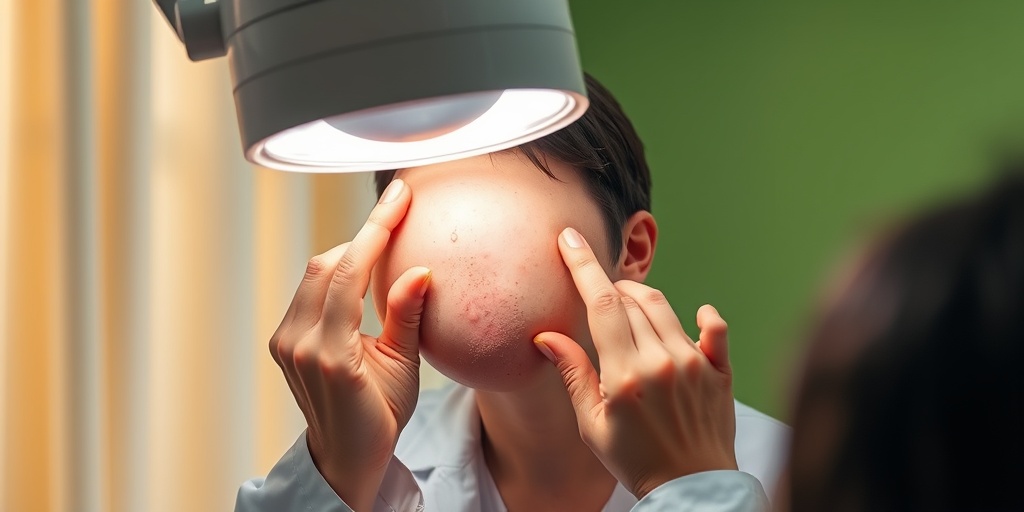
Pimple Causes
Pimples, commonly known as acne, are a prevalent skin condition that affects millions of people worldwide. Understanding the causes of pimples is crucial for effective treatment and prevention. Let’s delve into the primary factors that contribute to the formation of these pesky blemishes.
1. Excess Oil Production
One of the leading causes of pimples is the overproduction of sebum, the natural oil produced by your skin. When your skin produces too much oil, it can clog pores, leading to the formation of pimples. This is particularly common in individuals with oily skin types.
2. Clogged Pores
Pores can become clogged with a combination of dead skin cells, excess oil, and bacteria. When these clogged pores become inflamed, they can develop into pimples. Regular exfoliation can help prevent this buildup and keep your skin clear.
3. Bacteria
The skin is home to various bacteria, including Propionibacterium acnes, which can contribute to acne. When pores are clogged, these bacteria can multiply, leading to inflammation and the formation of pimples. Maintaining a clean face with a suitable pimples acne face wash can help reduce bacterial growth.
4. Hormonal Changes
Hormonal fluctuations, particularly during puberty, menstruation, or pregnancy, can trigger increased oil production and lead to pimples. Androgens, a group of hormones, can cause the sebaceous glands to enlarge and produce more sebum, resulting in acne flare-ups.
5. Diet
While the relationship between diet and acne is still being studied, some evidence suggests that certain foods may exacerbate pimples. High-glycemic foods, dairy products, and sugary snacks can lead to increased insulin levels, which may trigger oil production and inflammation.
6. Stress
Stress can have a significant impact on your skin. When you’re stressed, your body produces more cortisol, a hormone that can increase oil production and lead to breakouts. Finding effective stress management techniques, such as exercise or meditation, can help keep your skin clear.
Pimple Risk Factors
While anyone can develop pimples, certain risk factors can increase your likelihood of experiencing acne. Understanding these factors can help you take proactive steps to minimize your risk.
1. Age
Acne is most common among teenagers and young adults due to hormonal changes during puberty. However, adults can also experience acne, particularly women who may have hormonal fluctuations related to their menstrual cycle or pregnancy.
2. Family History
If your parents had acne, you might be more prone to developing it as well. Genetics can play a significant role in determining your skin type and how your body responds to hormonal changes.
3. Skin Type
Individuals with oily skin are more likely to develop pimples due to the excess sebum production. Conversely, those with dry skin may experience different types of acne, such as closed comedones or small pimples.
4. Certain Medications
Some medications, including corticosteroids and certain birth control pills, can contribute to acne development. If you suspect your medication is affecting your skin, consult your healthcare provider for alternatives.
5. Environmental Factors
Exposure to pollutants, humidity, and certain skincare products can exacerbate acne. It’s essential to choose non-comedogenic products that won’t clog your pores and to maintain a consistent skincare routine.
6. Lifestyle Choices
Your lifestyle can also influence your skin health. Poor sleep, lack of exercise, and unhealthy eating habits can contribute to increased stress and hormonal imbalances, leading to more frequent breakouts. Prioritizing a balanced diet and regular physical activity can help keep your skin clear.
By understanding the causes and risk factors associated with pimples, you can take informed steps to manage and prevent acne effectively. Whether it’s through lifestyle changes, skincare routines, or seeking professional advice, taking control of your skin health is within reach! 🌟
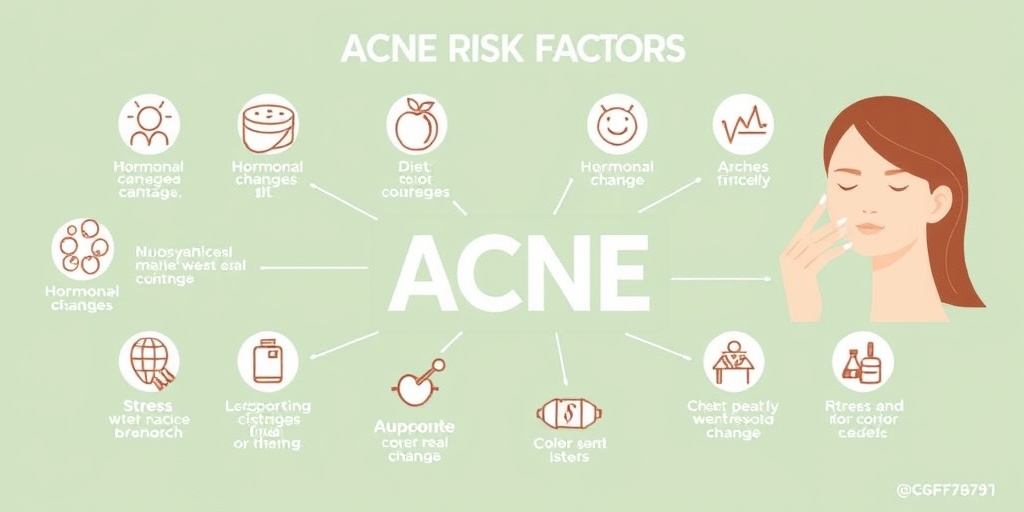
Pimple Diagnosis
Understanding the type of pimples (acne) you have is crucial for effective treatment. Diagnosing pimples involves recognizing their characteristics and understanding the underlying causes. Here’s a breakdown of how to identify different types of pimples and what they might indicate about your skin health.
Types of Pimples
Pimples can manifest in various forms, each with distinct features:
- Whiteheads: These are small, round, and white bumps that occur when hair follicles become clogged with oil and dead skin cells.
- Blackheads: Unlike whiteheads, blackheads are open at the surface and appear dark due to oxidation. They are also caused by clogged pores.
- Cystic Acne: This is a severe form of acne characterized by large, painful lumps beneath the skin. Cystic acne often requires professional treatment.
- Papules: These are small, red, raised bumps that can be tender to the touch. They are often a sign of inflammation.
- Pustules: Similar to papules but filled with pus, pustules are often what people think of when they refer to pimples.
Common Causes of Pimples
Identifying the cause of your pimples is essential for effective treatment. Here are some common factors:
- Hormonal Changes: Fluctuations in hormones, especially during puberty, menstruation, or pregnancy, can lead to increased oil production and pimples.
- Diet: Certain foods, particularly those high in sugar and dairy, may trigger acne in some individuals.
- Stress: High-stress levels can lead to hormonal changes that exacerbate acne.
- Skincare Products: Using products that are too harsh or not suitable for your skin type can lead to breakouts.
When to See a Dermatologist
If you experience persistent or severe acne, it’s advisable to consult a dermatologist. They can provide a proper diagnosis and recommend treatments tailored to your specific needs. Signs that you should seek professional help include:
- Severe cystic acne that doesn’t respond to over-the-counter treatments.
- Acne that leaves scars or dark spots.
- Frequent breakouts that affect your self-esteem.
Pimple Treatment Options
Once you’ve diagnosed the type of pimples you have, it’s time to explore treatment options. There are numerous ways to manage and treat pimples (acne), ranging from over-the-counter solutions to professional treatments.
Over-the-Counter Treatments
Many effective treatments are available without a prescription. Here are some popular options:
- Salicylic Acid: This beta hydroxy acid helps unclog pores and reduce inflammation, making it effective for treating blackheads and whiteheads.
- Benzoyl Peroxide: Known for its antibacterial properties, benzoyl peroxide can help reduce acne-causing bacteria and is effective for pustules and cystic acne.
- Retinoids: These vitamin A derivatives promote cell turnover and prevent clogged pores. They can be particularly effective for stubborn acne.
- Tea Tree Oil: A natural alternative, tea tree oil has antimicrobial properties and can help reduce inflammation.
Prescription Treatments
If over-the-counter options aren’t effective, a dermatologist may prescribe stronger treatments:
- Topical Retinoids: Prescription-strength retinoids can be more effective than over-the-counter versions.
- Oral Antibiotics: These can help reduce inflammation and bacteria in moderate to severe cases of acne.
- Hormonal Treatments: For women, hormonal therapies such as birth control pills can help regulate hormones that trigger acne.
Home Remedies
Some people prefer natural treatments for their pimples (acne). Here are a few home remedies that may help:
- Honey: Known for its antibacterial properties, applying honey to pimples can help reduce inflammation.
- Aloe Vera: This soothing plant can help calm irritated skin and reduce redness.
- Green Tea: Applying cooled green tea bags to the skin may help reduce acne due to its antioxidant properties.
Professional Treatments
For severe cases of acne, professional treatments may be necessary. Options include:
- Chemical Peels: These treatments remove the top layer of skin, helping to unclog pores and reduce acne.
- Laser Therapy: This can target acne-causing bacteria and reduce inflammation.
- Extraction Procedures: Dermatologists can safely remove blackheads and whiteheads to prevent further breakouts.
Finding the right treatment for your pimples (acne) may take time and experimentation. Always consult with a healthcare professional before starting any new treatment regimen to ensure it’s appropriate for your skin type and condition. 🌟
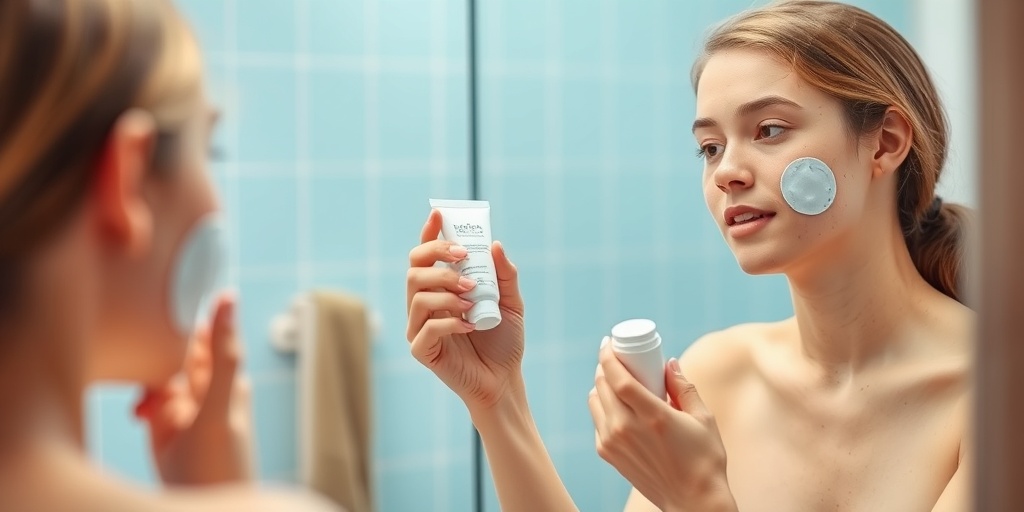
Pimple Home Remedies
Pimples, commonly known as acne, can be a frustrating skin issue for many. While there are numerous treatments available, some people prefer to explore home remedies that can be effective and gentle on the skin. Here are some tried-and-true remedies that may help you manage and reduce pimples naturally.
1. Tea Tree Oil
Tea tree oil is renowned for its antibacterial properties, making it a popular choice for treating acne. To use it:
- Dilute a few drops of tea tree oil with a carrier oil, such as coconut or jojoba oil.
- Apply the mixture directly to the affected area using a cotton swab.
- Leave it on for at least 30 minutes before rinsing off.
Repeat this process daily for best results. 🌿
2. Honey and Cinnamon Mask
Both honey and cinnamon have anti-inflammatory and antibacterial properties. This combination can help reduce redness and swelling associated with pimples.
- Mix 2 tablespoons of honey with 1 teaspoon of cinnamon.
- Apply the mixture to your face, focusing on areas with pimples.
- Leave it on for 10-15 minutes before rinsing off with warm water.
Use this mask 2-3 times a week for optimal results. 🍯
3. Aloe Vera Gel
Aloe vera is known for its soothing properties and can help reduce inflammation and redness. To use:
- Extract fresh aloe vera gel from the leaf.
- Apply it directly to the pimples and leave it on overnight.
- Rinse off in the morning.
This remedy can be used daily and is especially beneficial for sensitive skin. 🌱
4. Green Tea
Green tea is packed with antioxidants and has anti-inflammatory properties. It can help reduce acne and prevent future breakouts.
- Brew a cup of green tea and let it cool.
- Use a cotton ball to apply the tea to your face or pour it into a spray bottle for easy application.
- Leave it on for 10 minutes before rinsing off.
Incorporating green tea into your skincare routine can be a refreshing way to combat pimples. 🍵
5. Lemon Juice
Lemon juice has natural astringent properties and can help dry out excess oil on the skin. However, it should be used with caution as it can make your skin sensitive to sunlight.
- Apply fresh lemon juice to the affected areas using a cotton ball.
- Leave it on for about 10 minutes before rinsing off.
Use this remedy sparingly, as overuse can lead to dryness. 🍋
Pimple Prevention Tips
Preventing pimples is often easier than treating them. Here are some effective tips to help you keep your skin clear and healthy:
1. Maintain a Consistent Skincare Routine
Establishing a daily skincare routine is crucial for preventing pimples. This should include:
- Gentle cleansing twice a day to remove dirt and excess oil.
- Moisturizing with a non-comedogenic product to keep your skin hydrated.
- Exfoliating 1-2 times a week to remove dead skin cells.
2. Watch Your Diet
Your diet can significantly impact your skin health. Consider the following:
- Limit sugary and processed foods, which can trigger breakouts.
- Incorporate more fruits, vegetables, and whole grains into your meals.
- Stay hydrated by drinking plenty of water throughout the day.
A balanced diet can help maintain clear skin. 🥗
3. Avoid Touching Your Face
Touching your face can transfer bacteria and oils from your hands to your skin, leading to breakouts. Try to:
- Be mindful of your hands and avoid resting them on your face.
- Use a clean towel to dry your face instead of your hands.
4. Manage Stress
Stress can trigger hormonal changes that lead to acne. To manage stress:
- Engage in regular physical activity, such as yoga or jogging.
- Practice relaxation techniques like meditation or deep breathing exercises.
Finding healthy ways to cope with stress can help keep your skin clear. 🧘♀️
5. Choose the Right Products
Using the right skincare and makeup products is essential for preventing pimples. Look for:
- Non-comedogenic products that won’t clog your pores.
- Oil-free moisturizers and sunscreens.
Always check labels and opt for products designed for acne-prone skin. 🧴
By incorporating these home remedies and prevention tips into your routine, you can take significant steps toward managing and preventing pimples effectively. Remember, consistency is key! 🌟
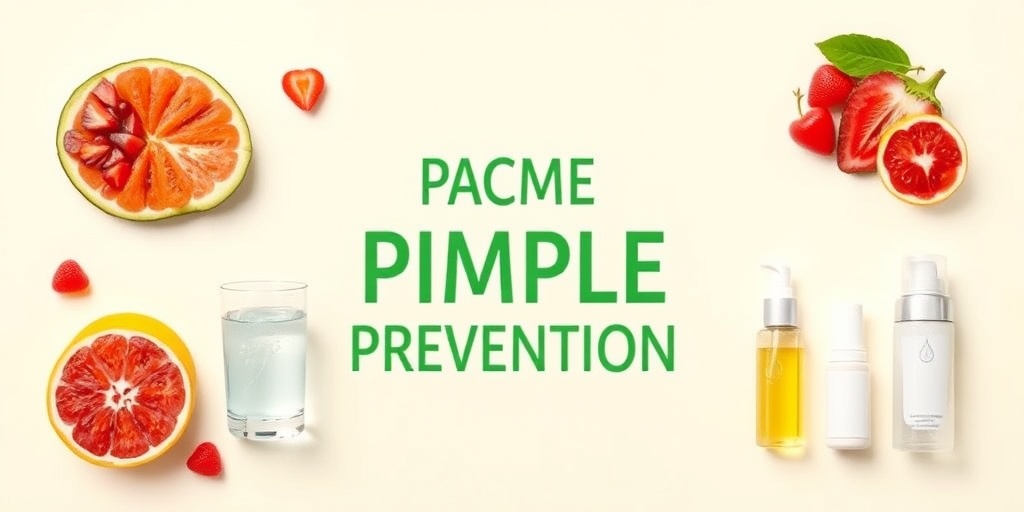
Frequently Asked Questions about Pimples (Acne)
What are the main causes of pimples (acne)?
Pimples, commonly known as acne, can be caused by a variety of factors including:
- Hormonal changes: Fluctuations during puberty, menstruation, or pregnancy can trigger acne.
- Excess oil production: Overactive sebaceous glands can lead to clogged pores.
- Bacteria: The presence of Propionibacterium acnes can contribute to inflammation.
- Diet: Certain foods may exacerbate acne in some individuals.
- Stress: Increased stress levels can worsen acne symptoms.
How can I treat pimples (acne) effectively?
Effective treatment options for pimples include:
- Topical treatments: Creams containing benzoyl peroxide or salicylic acid can help reduce acne.
- Oral medications: Antibiotics or hormonal treatments may be prescribed by a doctor.
- Home remedies: Natural treatments like tea tree oil or aloe vera can be beneficial.
- Skincare routine: Using a gentle face wash specifically designed for acne can help.
What is the difference between pimples and blackheads?
Pimples and blackheads are both forms of acne, but they differ in appearance:
- Pimples: These are inflamed, red bumps that may contain pus.
- Blackheads: These are open comedones that appear as small black dots on the skin’s surface.
Can I remove pimples (acne) at home?
Yes, there are several home remedies that may help reduce the appearance of pimples:
- Ice application: Applying ice can reduce swelling and redness.
- Honey and cinnamon mask: This combination has antibacterial properties.
- Green tea: Applying cooled green tea bags can soothe the skin.
How can I get rid of dark spots left by pimples (acne)?
To fade dark spots, consider the following options:
- Vitamin C serums: These can brighten the skin and reduce pigmentation.
- Exfoliation: Regular exfoliation can help remove dead skin cells.
- Sun protection: Using sunscreen can prevent dark spots from worsening.
Are there any specific creams for treating pimples (acne)?
Yes, there are many creams available that target pimples:
- Benzoyl peroxide cream: Effective for killing acne-causing bacteria.
- Salicylic acid cream: Helps unclog pores and reduce inflammation.
- Retinoid creams: Promote cell turnover and prevent clogged pores.
What should I do if I have cystic pimples (acne)?
Cystic acne can be more severe and may require professional treatment. Here are some steps to consider:
- Consult a dermatologist: They can prescribe stronger medications.
- Avoid picking: Picking at cystic acne can lead to scarring.
- Use warm compresses: This can help reduce pain and swelling.
Can stress really affect my pimples (acne)?
Yes, stress can lead to hormonal changes that may trigger or worsen acne. Managing stress through relaxation techniques, exercise, and proper sleep can help improve your skin condition.
Is it normal to have pimples (acne) as an adult?
Absolutely! Adult acne is common and can be caused by hormonal changes, stress, or other factors. It’s important to find a suitable treatment plan that works for you.

